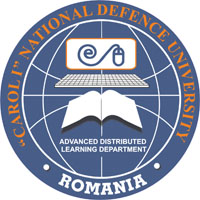UTILIZING CROSSWORD CREATION SOFTWARE TO DEEPEN LEARNING IN UNDERGRADUATE STUDENTS
UTILIZING CROSSWORD CREATION SOFTWARE TO DEEPEN LEARNING IN UNDERGRADUATE STUDENTS
Author(s): Ionut-Dorin Stanciu, Carmen BalSubject(s): Education
Published by: Carol I National Defence University Publishing House
Keywords: deep learning; content creation; information processing
Summary/Abstract: Learning support software varies from dedicated learning software that emulates the didactics of learning as close as possible, to non-dedicated software capable of providing support or scaffolds for the cognitive processes involved in learning. Software such as Algebrator™ or Cabri 3D™ are closer to the first end the spectrum. Regarding the other end of the spectrum, many steps were taken since the advent of the first concept and mind mapping tools, with software like Argunet™, Austhink’s Rationale™, or Hot Potatoes™ bringing considerable diversity to the digital cognitive tools available today. While the implementation of complex learning systems is not adequate for certain educational establishments as well as for certain courses, teachers are open to any efficient tool that can adequately contribute to the instructional and learning processes. Our research included a between-subjects post-test only study of the various manners of utilization of Hot Potatoes and explore the research hypothesis that the use of digital tools to increase information processing leads to observable increase in academic performance. Crosswords created in Hot Potatoes were used to enrich the information processing involved in students’ solving of homework. 1st year undergraduate students enrolled in the Classroom Management course participated in the study and were distributed in one control group and two experimental groups. The control group received regular homework assignments, while the experimental groups were tasked to solve crosswords created with Hot Potatoes™ only, or, respectively, for the second experimental group, to solve regular homework assignments and crosswords given the first experimental group. ANOVA processing indicated statistically significant differences between the group receiving homework and crosswords, as compared to both the control and the experimental group receiving only crosswords assignments. The best academic performances were achieved in the experimental group using both regular assignments and crosswords, followed by the group receiving regular assignments and by the group receiving only crosswords assignments. Also, a measure of perceived difficulty of knowledge test was made, indicating that the use of crosswords assignments contributed to a decrease in perceived difficulty of the knowledge test. While the obtained results support the research hypothesis, further study is needed to clarify issues and the role of other variables, such as the role of the perceived task value in motivating the learning and, consequently, in academic performance.
Journal: Conference proceedings of »eLearning and Software for Education« (eLSE)
- Issue Year: 11/2015
- Issue No: 03
- Page Range: 247-253
- Page Count: 7

